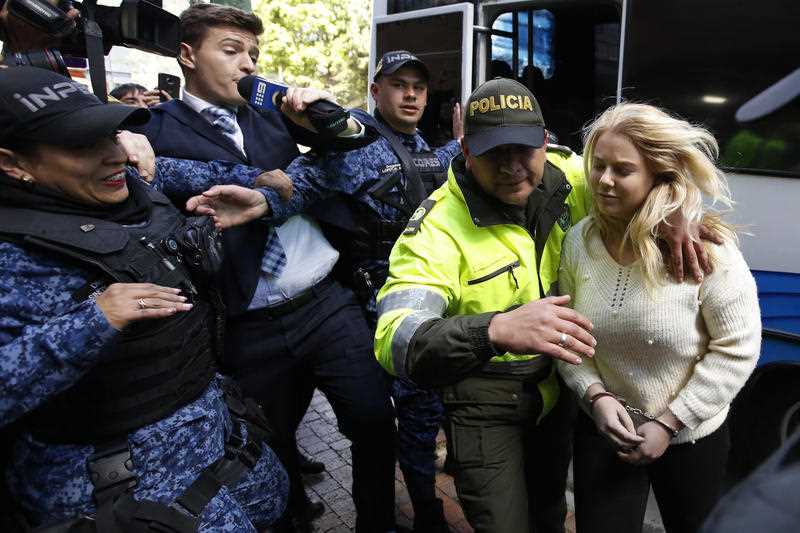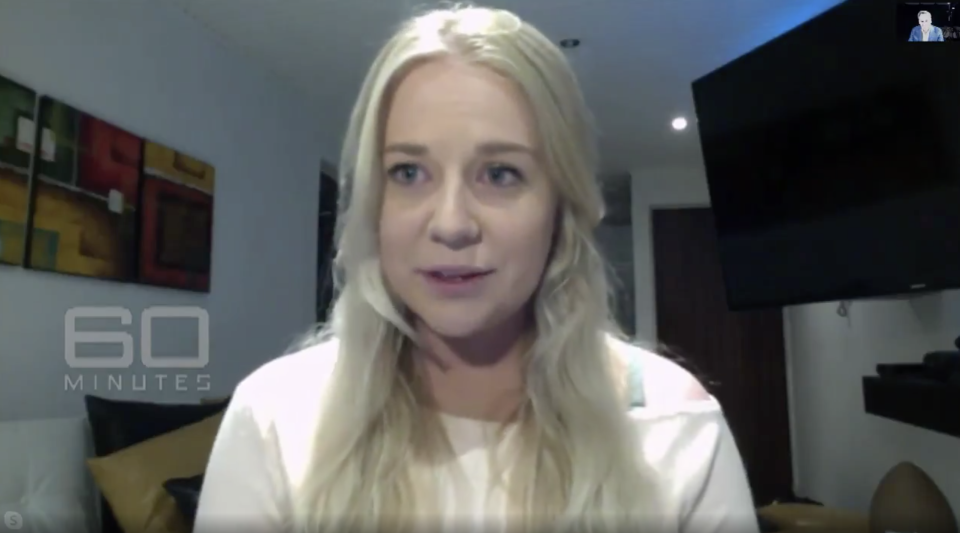Cassie Sainsbury 'released from prison' in Colombia
Convicted Australian drug smuggler Cassie Sainsbury has reportedly been released from prison in Colombia after three years behind bars.
Nine News reports Cocaine Cassie, as she was nicknamed, was released overnight and is now on parole. As part of her parole conditions she cannot leave Colombia for 27 months.
Live blog: Coronavirus news and updates
In an interview with Nine’s 60 Minutes Sainsbury says she has “grown up a lot” since she was jailed.

“I learned a lot about myself, I learned a lot about people, I've learned how to analyse people better and - and I've learned not to trust people so much,” she told the program.
“It's been definitely a massive learning curve but, at the same time, everything that I've been through in prison, everything that I learnt I wouldn't change it because it's made me a stronger person it's made me who I am today.”
The South Australian resident was serving a six-year term for smuggling almost six kilos of cocaine out of Colombia in April 2017.
The rest of her interview will be aired on Sunday night.

Colombia on Wednesday ordered the temporary release of 4000 prisoners in an effort to reduce overcrowding and prevent the spread of the coronavirus.
Sainsbury’s former lawyer Stephen Kenny believes this is why she was released.
"Being in prison anywhere in the world at the moment would be very difficult particularly with the virus and the fact that prisons are very much like a cruise ship in the sense that everyone is locked on them," Mr Kenny told the ABC.
"If a virus got in there it could be quite deadly."
After six months, the prisoners will have to return to prison to serve out their sentences. Breaking the terms of their house arrest would lead to them being re-imprisoned.
Two prisoners have already died from COVID-19 in the South American country.
The "humanitarian" releases are aimed at ensuring "that the people most vulnerable to the virus can get out of prison confinement and go to house arrest and improve their health protection," President Ivan Duque said on Colombian radio.
The government decree does not apply to prisoners belonging to armed groups, or those convicted of drug trafficking, sexual crimes or crimes against humanity.
The move comes three weeks after rioting at a prison in Bogota left 23 dead and 91 wounded.
Colombia has recorded more than 3,000 coronavirus infections, including 127 deaths.
Inmates extend their hands at the Modelo prison in Bogota after a riot on March 22 left 23 prisoners dead and 90 wounded
with AFP
Do you have a story tip? Email: newsroomau@yahoonews.com.
You can also follow us on Facebook, Instagram and Twitter and download the Yahoo News app from the App Store or Google Play.




